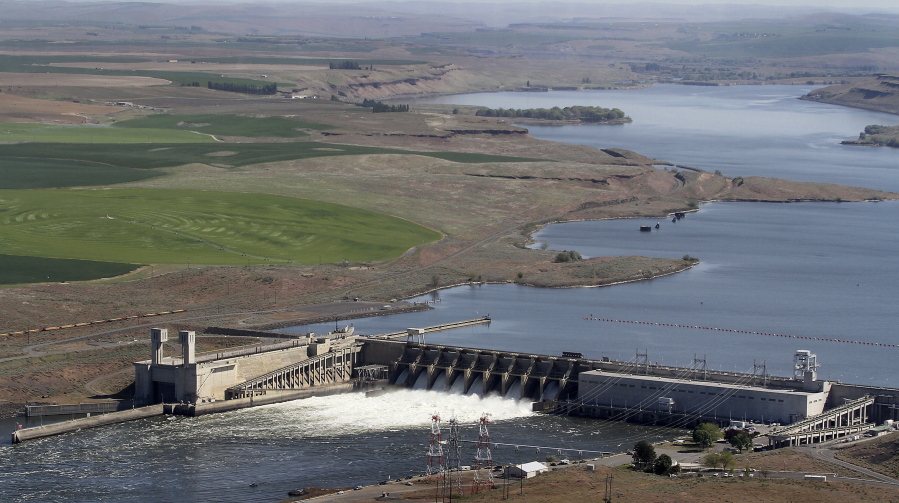KENNEWICK — The federal government is required to come up with a plan to help protect salmon in the Snake and Columbia rivers from water that’s too warm for the cold-water fish.
The ruling made Wednesday by U.S. Judge Ricardo Martinez is another piece of evidence on the side of removing the four lower Snake River dams, said Miles Johnson, senior attorney for Columbia Riverkeeper.
Columbia Riverkeeper, along with four other groups, filed a lawsuit in February 2017 against the Environmental Protection Agency, saying it failed to come up with a plan for maximum daily temperatures to protect salmon from hot water.
Other plaintiffs were Idaho Rivers United, Pacific Coast Federation of Fishermen’s Associations, Snake River Waterkeeper and The Institute for Fisheries Resources.
The lawsuit in Western Washington District U.S. Court was prompted by the summers — particularly the summer of 2015 — when river temperatures were too warm for migrating fish.
In 2015 warm water killed roughly 250,000 adult sockeye salmon migrating up the rivers, according to the plaintiffs.
The warm water conditions were apparent in the Mid-Columbia, where carcasses of dead sturgeon, some as long as 7 feet, lay in the Columbia River.
Martinez ordered the EPA to produce a plan within 60 days. A previous effort in 2003 stalled before a plan was released.
“In recent years, water temperature in the Columbia and Snake rivers has consistently exceeded 68 degrees F(ahrenheit), especially during the summertime salmon and steelhead runs, presenting a problem for the continued survival of those native fish populations,” the judge said in his ruling.
Fish are stressed at temperatures above 68 degrees and stop migrating at 74 degrees, according to the Associated Press.
Temperature issues will worsen as the effects of human activity and climate change continue to increase water temperatures, harming the ability of salmon and steelhead to migrate for spawning, he said.
The parties in the lawsuit agree that the focus for potential cases of warming water temperature in the Columbia and Snake rivers lies with the dams and discharges into the rivers, he said. Some industries discharge warm water into the rivers.
Dams on the Columbia and Snake create large, slow-moving reservoirs that cause high water temperatures, the plaintiffs said when they filed the lawsuit.
Removing the four lower Snake River dams would cool the river water, Johnson said, and Columbia Riverkeeper hopes that will be discussed and studied.
In the past, cold water has been released from the Dworshak Reservoir in Idaho to cool downstream water.
Other options to cool water include managing reservoirs through draw downs so there is less surface water to heat up and possibly pumping more cold water into fish ladders at dams, Johnson said.
The plan to be developed by EPA is expected to serve as a road map to solutions, identifying the sources of temperature problems and how much each source needs to reduce temperatures.
Northwest RiverPartners — an alliance of farmers, utilities, ports and businesses — said in an online post in 2016 that dams can be managed to help in warm water events, including by releasing colder water from upstream reservoirs such as Grand Coulee, Dworshak and Canadian dams.
Having emergency pumps available to tap into colder water in reservoir bottoms should be examined, it said.
It also criticized the indecision as salmon perished in 2015 after the National Oceanic and Atmospheric Administration Fisheries requested a halt for two days to spilling warm river water on salmon trying to enter the fish ladder at Little Goose Dam on the Snake River.



